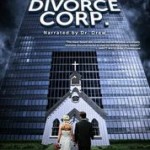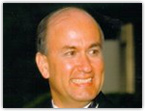It has been out for a while now, but the family law documentary “Divorce Corp.” continues to gain fans, with its official trailer moving past 1 million views on YouTube and continued theater-venue screenings. The next one in the L.A. area, for example, is May 8 at 7 p.m. and hosted by “The Divorce Transition Professionals” at the Westlake Village Twin Theater.
The film takes a hard look at the family court in general through how it handles divorces, especially how children can become pawns in the proceedings. It is issue-specific, but shows some serious problems with L.A. family courts – the film makes the case that the system has become little more than a huge fee factory for lawyers and the courts.
Is it fair? Dan Schawbel at Huffington Post has a good interview with Dr. Drew Pinsky that largely answers that. Says Dr. Drew: “This is a system that doesn’t really serve anyone’s best interest except the system itself.”
Check out the trailer, the companion book and find local screenings here: www.divorcecorp.com.

